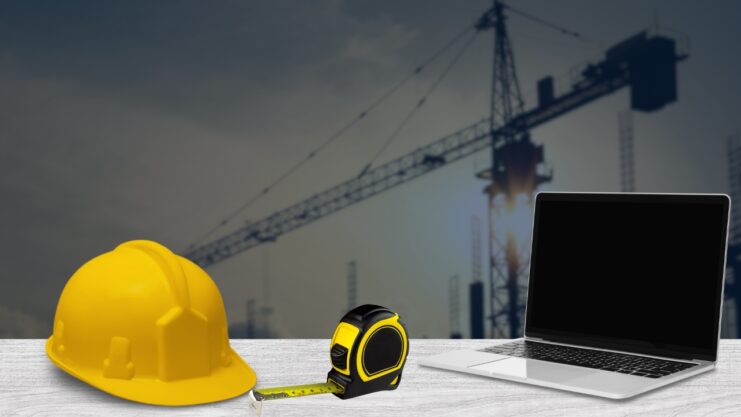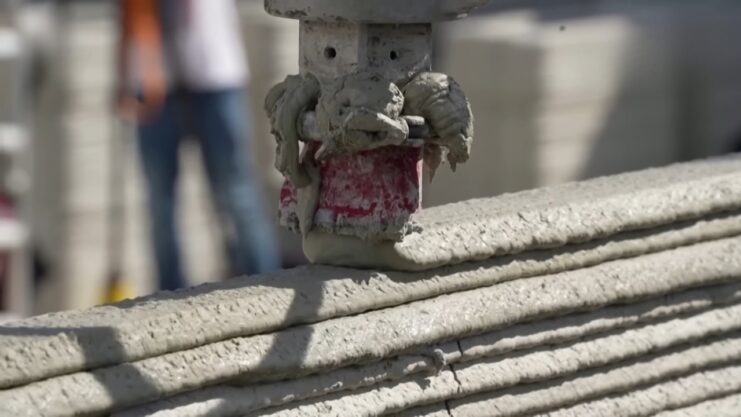The construction industry is more competitive than ever before. With tightened margins and increased complexity of projects, construction companies need to find ways to outpace their competition.
Implementing smart construction solutions can give companies a distinct competitive edge. Here are some of the key ways that embracing new technologies and processes can help construction businesses thrive in a challenging marketplace.
Leverage Data and Analytics

Data is power in the modern construction world. Companies that effectively collect, analyze and act on project data will have a leg up on the competition. Smart construction technologies like AI, machine learning and predictive analytics allow businesses to identify risks earlier, enhance efficiency, improve quality control and more.
For instance, predictive analytics can forecast problems and delays through real-time analysis of data from IoT sensors, equipment and workers. This gives management lead time to correct issues before they escalate. Companies that embrace data-driven decision-making and insights will achieve better margins and avoid unnecessary costs.
Automate Processes
Automating repetitive, low-value processes is critical for boosting efficiency. Smart construction solutions from sites such as columbusequipment.com can automate everything from bid management to materials ordering to progress reports. This streamlines operations and allows management to focus their time on high-value strategy and problem-solving. It also reduces waste and errors caused by manual work.
Companies leveraging process automation can complete projects faster with fewer cost overruns. They experience less employee burnout since technology handles routine tasks. This efficiency advantage makes it possible to bid more competitively on projects. Embracing automation helps construction firms complete a higher volume of work without expanding staff.
Improve Safety and Quality

Safety and quality failures can upend projects and damage a company’s reputation. Smart technologies provide real-time insights to improve both areas. IoT sensors can track worker biometrics and environmental conditions, triggering alerts for dangerously high temperatures or heart rates, for example.
Wearable tech and augmented reality guide workers through processes in the optimal sequence, reducing mistakes. Automated surveys via drone allow rapid quality checks. Big data analysis detects patterns in defects and prescribes corrective actions. Companies that leverage tech to enhance safety and quality will avoid costly rework and incidents.
Enhance Sustainability
Sustainability is both an ethical obligation and competitive advantage for modern construction companies. Smart solutions enable greener building practices by optimizing energy and resource use. Building information modeling simulates performance to pinpoint the most efficient HVAC systems, materials, lighting designs and more. IoT sensors closely monitor energy and water consumption during operations, allowing adjustments in real time.
Companies can also use big data analytics to determine the sustainability impacts of material choices and construction techniques. Construction businesses that leverage technology to reduce their environmental footprint will attract clients focused on green building.
Improve Communication and Collaboration

Construction projects involve coordination across owners, architects, contractors and subcontractors. Smart solutions dramatically improve communication and collaboration capabilities. Cloud-based platforms allow real-time sharing of BIM models, project documents, schedules and other vital information. Mobile tech with GPS enables workers across sites to update progress and flag issues.
Immersive tech like VR/AR allows remote teams to “walk” the site together. Companies that implement solutions to enhance information sharing will experience less conflicts and delays. This allows them to take on more complex projects requiring tight coordination between multiple stakeholders.
Embrace Offsite/Modular Construction
Offsite and modular construction are key trends reshaping the industry. Components are prefabricated in a controlled facility and then assembled onsite. This boosts quality, allows faster completion and reduces safety risks. Smart technology makes offsite construction more viable than ever. 3D scanning and modeling streamline design of modular components. Automated equipment improves precision fabrication.
IoT sensors can track conditions during transport and installation. Robotics assist with onsite assembly. Construction companies that add offsite and modular capabilities can complete contracts faster. They can prefabricate concurrently with site work, compressing schedules.
Implement Robotic Automation
Robotics and automated equipment are transforming many facets of construction. Exoskeletons allow workers to safely lift heavy materials and avoid fatigue. Robotic arms accurately position components during assembly. Autonomous vehicles move materials around sites safely. Automated bulldozers and cranes operate with precision.
Many hazardous tasks like welding and bricklaying can now be done robotically. This improves safety and quality. Companies using robotics can reduce reliance on skilled labor during a workforce shortage. They can operate more efficiently around the clock without time-limited humans. Being an early adopter of robotic automation gives companies a distinct edge.
Leverage AR/VR Tools
Immersive technologies like virtual and augmented reality provide a range of competitive advantages. AR headsets enable remote expert collaboration so problems can be visually diagnosed and solved anywhere. VR simulations allow clients to virtually walk through buildings prior to construction.
Operators use VR for highly accurate training without real-world risks. Construction companies can pitch clients more effectively by providing immersive VR design previews. And AR-guided work improves quality and safety onsite. The adoption of VR/AR shows that a company is technically progressive and client-focused.
Partner With Innovative Suppliers

Partnering with suppliers that embrace smart construction gives companies an edge. Material and equipment vendors are bringing advanced solutions to market like self-healing concrete, 3D-printed construction materials and exoskeletons.
Prefabricated component makers are improving offsite fabrication capabilities. Construction tech startups are offering cutting-edge solutions. Aligning with the most innovative suppliers gives contractors early access to breakthrough technologies.
Leverage a Digital Platform
An enterprise-wide digital platform is the linchpin enabling many smart construction solutions. Cloud-based platforms integrate previously siloed data sources. They allow collaboration across stakeholders and locations. They host applications for model simulation, design, project management, procurements, analytics and more.
Platforms harness internet of things and machine learning capabilities. They provide mobile access and strong security. Construction companies that invest in an end-to-end digital platform gain better visibility across complex projects. Tasks become more streamlined, automated and error-free.
Smart construction solutions enable construction companies to work faster, safer, greener and more efficiently. They provide a wealth of data insights not previously available. Adoption of new technologies and processes is necessary for construction businesses to maintain a competitive advantage. Companies that embrace innovation will be best positioned to profitably deliver the high-complexity projects of the future.

